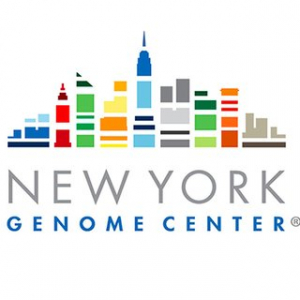Job Description
Job Description
A position for an Associate Scientist I with theoretical knowledge in next-generation sequencing techniques and molecular biology is available in the Center for Genomics of Neurodegenerative Disease (CGND) at the New York Genome Center. The initial research focus is on Amyotrophic Lateral Sclerosis (ALS), with a particular emphasis on regulatory mechanisms affecting the transcriptome, as well as mechanisms underlying intercellular interactions in disease. We integrate the experimental and computational analysis of large-scale data that includes transcriptomes of specific cell types in the Central Nervous System, profiles of RNA-binding proteins implicated in disease, and high-resolution imaging.
The group seeks an incumbent with at least one to two years of research experience to support sample processing and preparation of libraries, from cDNA to library preparation, QC, maintaining a large number of sample records, creating efficient workflows, developing new protocols to allow for high throughput processing, and performing lab duties as necessary
Job duties will include, but are not limited to:
Carry out procedures associated with DNA & RNA sequencing on the Illumina sequencing platform, including DNA/RNA library preparation, sample quantification & preparation, and Sequencer operation;
Perform quality control of the samples and raw sequencing data;
Assist in RNAseq library preparation, high and low input;
Maintain the established Visium and RNAseq workflow with supervision;
Assist with maintaining of the imaging data and the inventory of samples
Track all work and issues in the appropriate databases/tracking sheets; and,
Conduct other laboratory work, as needed.
Required Skills
Bachelors’ degree in Molecular Biology, Biotechnology, Biochemistry or related field required;
2 years of experience in a molecular biology lab with at least 1+ years of demonstrated experience with next-generation sequencing library prep protocols and sequencing preferred;
Solid knowledge of molecular biology equipment and related protocols (including RNA and DNA preparation, RNA and DNA quantification, hybridization, PCR, multiplex amplification and bead-based solutions) highly preferred;
Familiarity with Microsoft Word, Excel, and PowerPoint required, preferably with Mac OS;
Exposure to bioinformatics is preferred;
Good general laboratory and organizational skills, including the ability to work independently and efficiently are required;
Ability to multitask is required, along with an orientation toward teamwork and cooperation;
Strong creative thinking and problem solving skills required; and,
Excellent communication skills required.
New York Genome Center
New York, New York
The New York Genome Center (NYGC) is an independent, nonprofit academic research institution focused on furthering genomic research that leads to scientific advances and new insights and therapies for patients with neurodegenerative disease, neuropsychiatric disease, and cancer. Leveraging our strengths in whole genome sequencing, genomic analysis, and development of genomic tools, the NYGC serves as a nexus for collaboration in genomic research for the New York community and beyond.
The NYGC harnesses the expertise and builds on the combined strengths of our faculty, member institutions, scientific working groups, affiliate members, and industry partners to advance genomic discovery. Central to our scientific mission is an outstanding faculty who are leading independent research labs based at the NYGC and jointly with one of our member institutions, bringing a multidisciplinary and in-depth approach to the field of genomics.
The NYGC has attracted leading scientists whose wide-ranging expertise — including single cell genomics, genome engineering, population genomics, statistical genetics, computational biology and bioengineering —brings a multidisciplinary and in-depth approach to the field of genomics. NYGC senior and core faculty members, who hold joint appointments at leading New York institutions, include a Nobel Laureate, three Lasker award winners and five members of the National Academy of Sciences. Since its inception, NYGC researchers have published more than 200 research studies in leading, high-impact scientific journals.
-
IndustryNonProfit
-
No. of Employees50 - 250
-
Website
-
Jobs Posted41


